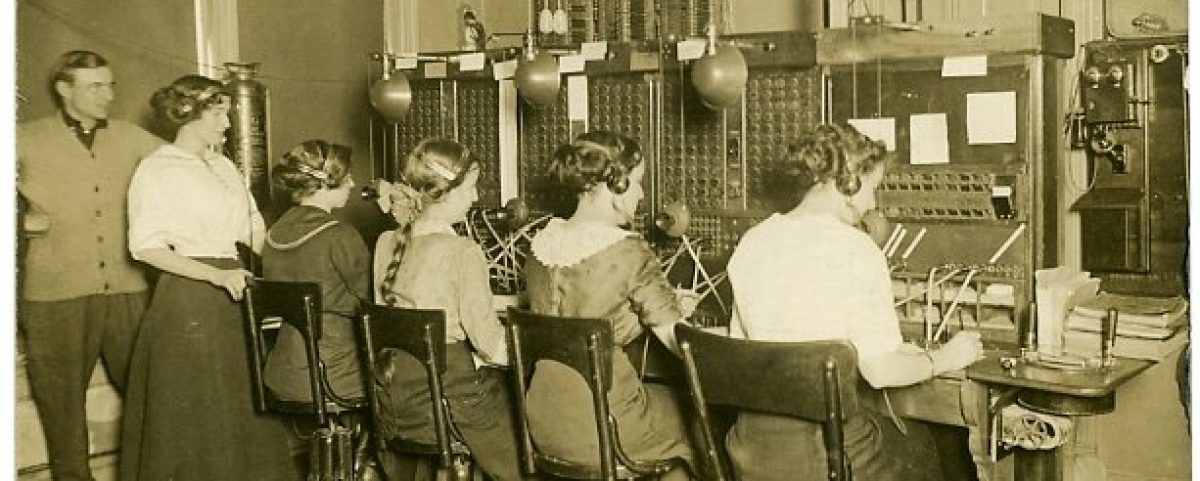 While historians learn about the past in many ways, one of the most exciting can be reading letters that were penned long ago. You never know what these private communications from another age are going to reveal or where they’re going to come from. Sometimes these pieces of paper have been stashed away in a long sealed attic trunk or shoe box, placed there by relatives who passed away generations ago. But a few times they’ve been trapped or secretly stashed behind walls for some reason, and revealed by construction or some other disturbance. Whatever the case these private exchanges are often illuminating as they put a different sort of light on times gone by.
While historians learn about the past in many ways, one of the most exciting can be reading letters that were penned long ago. You never know what these private communications from another age are going to reveal or where they’re going to come from. Sometimes these pieces of paper have been stashed away in a long sealed attic trunk or shoe box, placed there by relatives who passed away generations ago. But a few times they’ve been trapped or secretly stashed behind walls for some reason, and revealed by construction or some other disturbance. Whatever the case these private exchanges are often illuminating as they put a different sort of light on times gone by.
As the War of 1812 Bicentennial draws near I’ve been examining aging, unpublished manuscripts from that era and came across one from Captain Andrew Hall of the 30th Maryland regiment. This document had been in the custody of a relative Thomas E. Hall, who generously shared a copy.
Nearly two hundred years ago on November 13, 1813, the Captain penned this letter to his brother-in law David Wherry and sister in Brandy Camp, Ohio. After talking about the family in Cecil County and his aging mother, he informed the recipients that these were dangerous time here as the waters of the Chesapeake were polluted with the English and they had been here since last spring blockading all the seaport towns. As a consequence, merchandise of all sorts, especially sugar and salt, was very high.
One of the consequenes of the blockade was that trade from Baltimore to Elkton and then by wagon to Christiana was brisk. The demand for wagons exceeded anything Hall had seen and they were charging as high as a half a dollar per barrel for flour and 15 pence per hundred for hauling from Elkton to Christiana as there was no water passage.
Hall also told his brother-in-law about the British invasion on the Upper Chesapeake. On the 26th of April (1813), the militia had orders to march, but not being armed things were in a confused state. On the 28th the British landed at Frenchtown and set it on fire, which ”consumed it to ashes.” Elkton would have been destroyed if it the invaders hadn’t been “cowed” by the shot of one cannon ball from a small battery thrown up at the landing. It had a “good effect on them” which prompted the royal marines to retreat by the time the local militia was pretty well collected with arms.
The invaders fell down the river till the fourth of May when they attempted a landing at havre de Grace under a heavy cannonading on both sides. As they had the greatest force they succeeded in landing and setting fire to the town and several small vessels. From there the British went to Cecil Furnance, which was also burnt to ashes.
Hall was born in Cecil County in 1768 and died in 1846. He married Rosannah Mahaffey on February 6, 1789. He noted in his communications written in the middle of the war, that he had eleven children living and three dead (seven sons and four daughters).
The history that unfolds in aging letters provides glimpses into a very personal past as they reveal what others thought and observed. There’s great value in these aging letters for they show what someone though and generally was passing along in a private exchange between two people. That’s far different from say a newspaper, where an editor wrote for a large general audience and numerous factors affected the coverage provided by those sources.
Finally thanks to Thomas for sharing this letter so we know what was on the mind of one milita officer from northeastern Cecil County during those trying months, a dangerous times when the war came to our rivers and shores on the Chesapeake.




